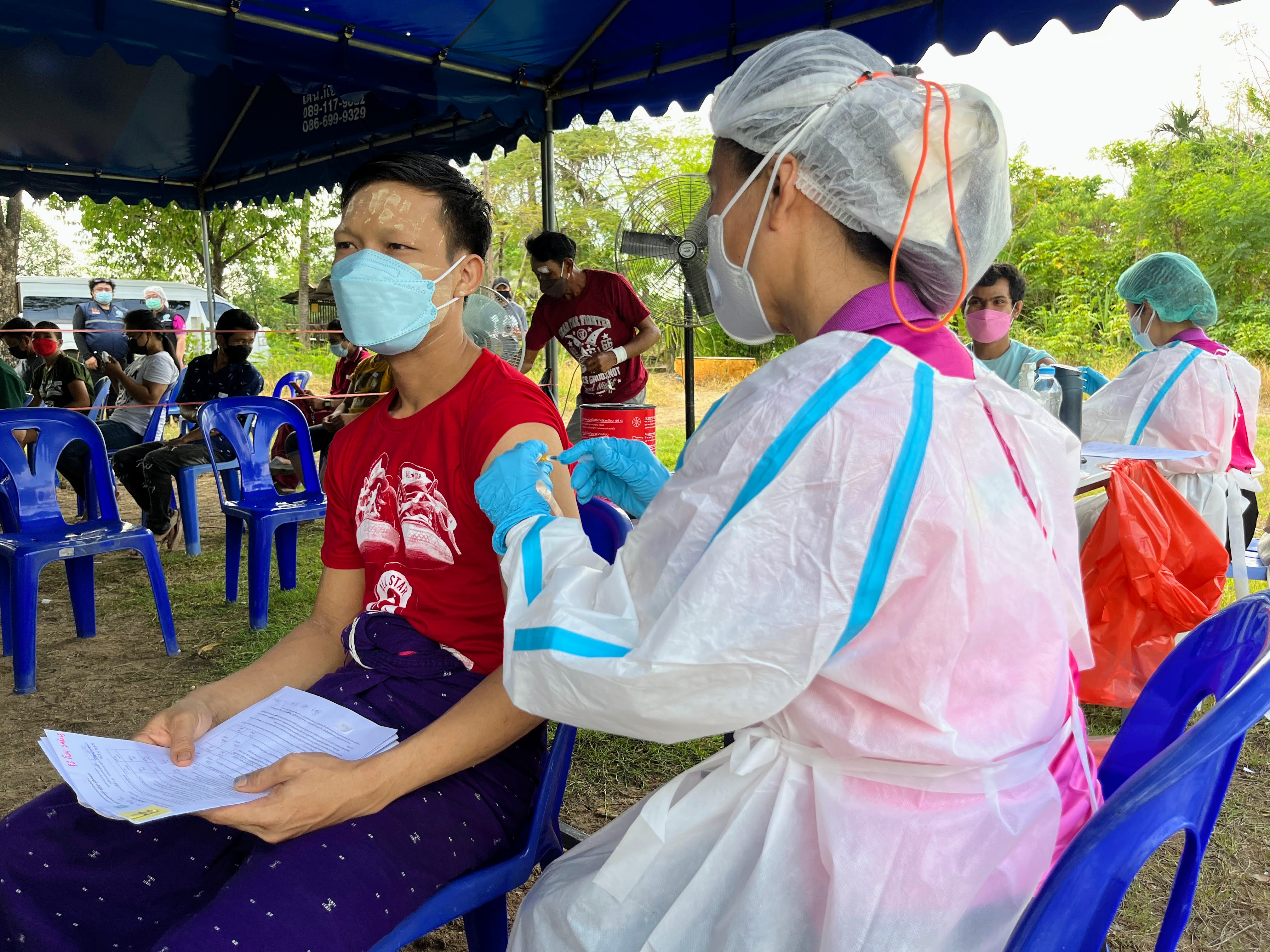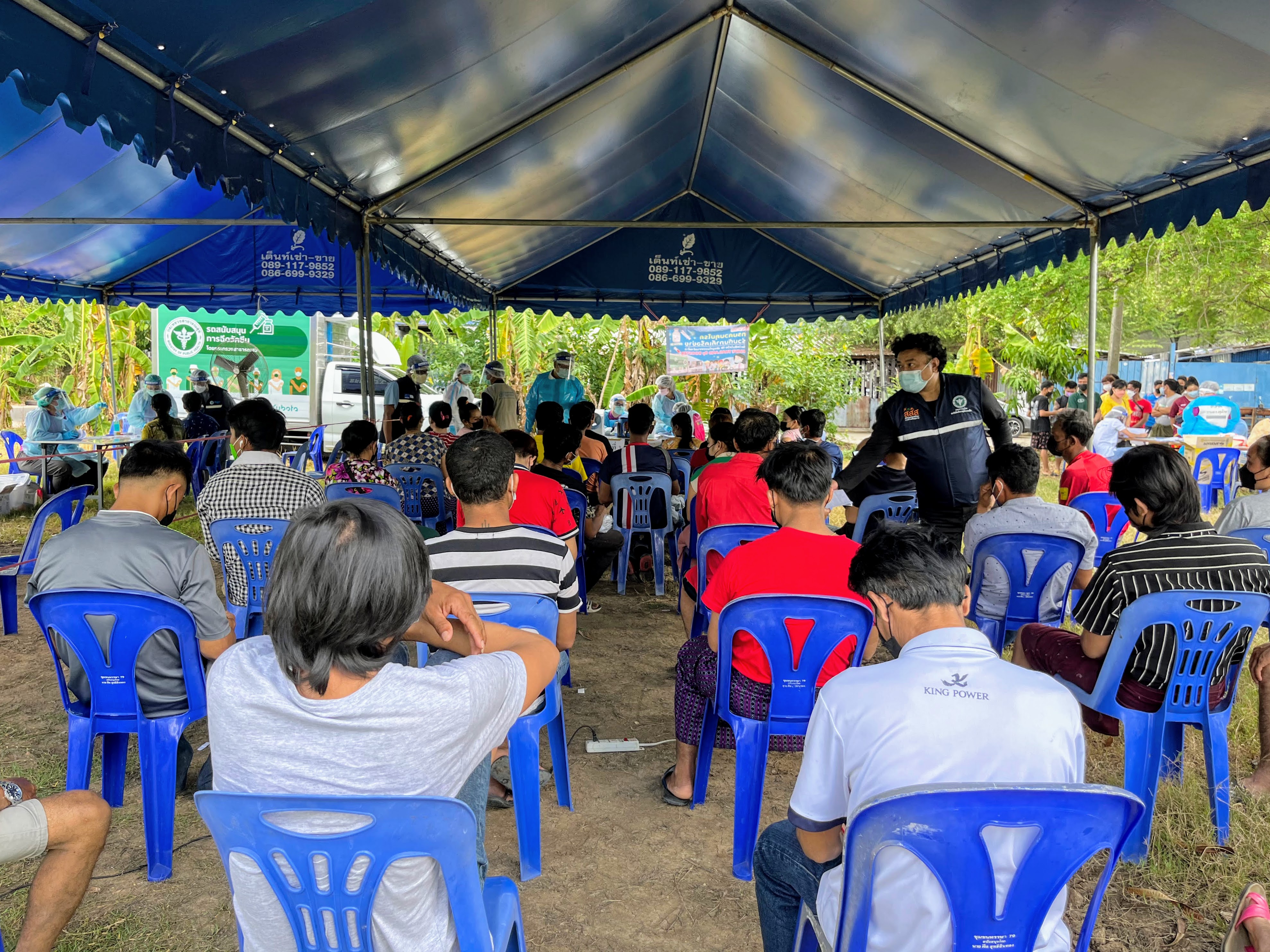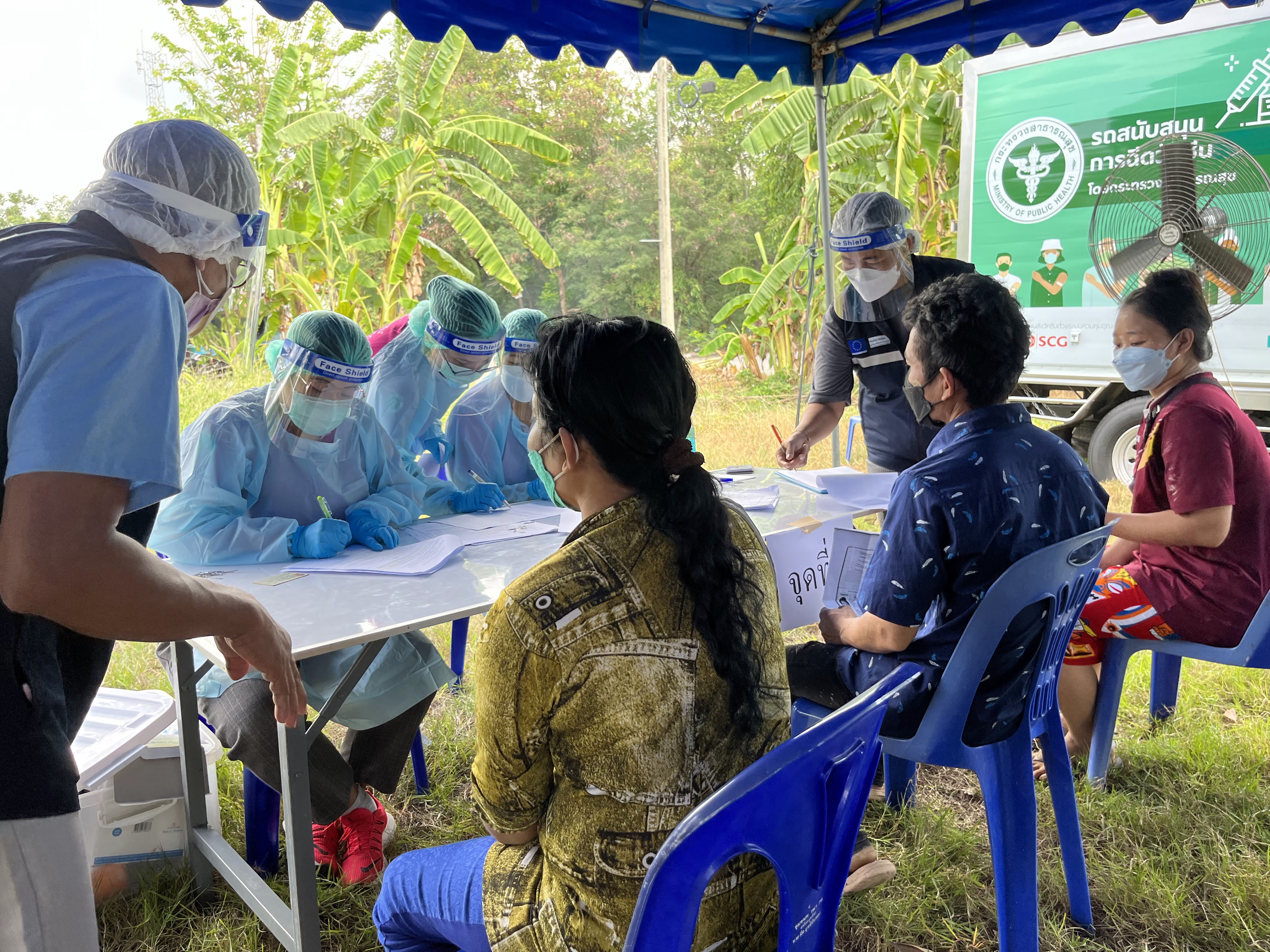By Thaweeporn Amy Kummetha
Thailand's Ministry of Public Health, and many stakeholders, are implementing mobile COVID-19 vaccination services for construction workers, mostly migrants, at construction camps around Bangkok and adjacent provinces. The aim is to vaccinate almost 3,500 people by early May.
The effort is being led by the Institute of Urban Disease Control (IUDC), under the Department of Disease Control, MOPH, and supported by the Health Department, Bangkok Metropolitan Administration, Thai Red Cross, WHO, World Vision Foundation and Siam Cement Group. The initiative receives great cooperation from construction companies, who provide space and arrange free time for the workers to receive vaccination.
As of 11 April, the plan covers 17 locations around Bangkok and adjacent provinces, spanning from late March to mid-May. More locations will be added to the plan to cover more camps.

A nurse from MOPH administers COVID-19 vaccine to a construction worker from Myanmar – 24 March 2022 / © WHO/ Amy Kummetha
"In fact, these migrants can go to any of Bangkok's vaccination centres as we'll vaccinate them, regardless of their status," said Dr Suthat Chottanapund, IUDC Director. "But we are coming to their doorstep because we understand that they may feel more comfortable if we do this. Especially if they are undocumented migrants, they may have a fear of contacting authorities."
Mr Surasak Thanaisawanyangkoon, WHO Thailand's expert on migrant health, added that the team also understand that people with low income, like migrants, may not want to or feel they cannot afford to 'waste time' travelling to and queuing for vaccines at vaccination centres. So the mobile vaccination services solves this problem.

After vaccination, migrants are seated in the observation area for 15 minutes -- – 24 March 2022 / © WHO/ Amy Kummetha
The vaccines that are provided to migrants are mostly mRNA Pfizer BioNTech, or viral vector AstraZeneca, said Dr Suthat.
24 March 2022 was the first day of this activity. The vaccination unit was set up in a vacant plot next to a construction camp in Talingchan District in western Bangkok. At this camp are 144 workers from Myanmar, Cambodia and Laos, who are constructing a shopping mall in the Bangkae area. The healthcare worker provided either a first dose, second dose or a booster dose to the workers depending on their vaccination history.
Dr Suthat said that the mobile vaccination unit for migrants is the same standard as for the Thai population. Each unit is composed of three stations; registration and medical history, vaccination, and observation A medical doctor is present on site at all times of the vaccination process.

Dr Chalo Sansilapin (far left), an MOPH medical doctor, inspects resuscitation kits that is prepared to treat anyone who may be severely allergic to the vaccine – 24 March 2022 / © WHO/ Amy Kummetha
During the vaccination session on 24 March, Dr Chalo Sansilapin, IUDC's physician, was seated in the observation area to monitor the migrants after vaccination.
"One of my roles today is to support the staff, but most importantly, I stand by to treat anyone who may be severely allergic to the vaccine. Not only do we have the resuscitation kits and drugs, but I’ve contacted a nearby hospital in advance in case I need to refer a patient. Although acute adverse events following immunisation are very rare, we have to be prepared because every life matters," said Dr Chalo.
For other adverse events following immunisation (AEFI), such as myocarditis, the migrants received a pamphlet on self-monitoring for AEFI. They were advised to seek medical care and report the symptoms to the MorProm application.
Other key players in the success of this initiative are the migrant health volunteers. With their bilingual proficiency, the migrant health volunteers helped with the registration and facilitated conversations about health and vaccine history between the migrants and the healthcare workers. One mobile vaccination unit needs 3-5 volunteers. The volunteers were trained by WHO and World Vision Foundation, with financial support from the European Union under the EU's South-East Asia Health Pandemic Response and Preparedness Programme.

Migrant health volunteers Mr Sokoeurn Chorn, (far left), and Ms Nan Moe, (3rd right), facilitated conversations about health and vaccine history between the migrants and MOPH staff in Khmer and Burmese, respectively – 24 March 2022 / © WHO/ Amy Kummetha
Mr Sokhoeurn Chorn, a migrant health volunteer from Cambodia, said he is pleased to be able to help fellow Cambodians in getting vaccinated. He translated Thai into Khmer and vice versa, helped fill forms for the illiterate workers and assured the workers that they are in a safe environment.
Since receiving the training in 2020, Mr Sokheurn regularly visits migrant workers at homes to educate them about COVID-19. He also helps to bring them to see doctors when they are sick and ensures that they receive relief packages during isolation. Mr Sokheurn, who has lived in Thailand for four years, added that without daily income, relief packages enable the migrants to stay isolated as per the health guideline.
